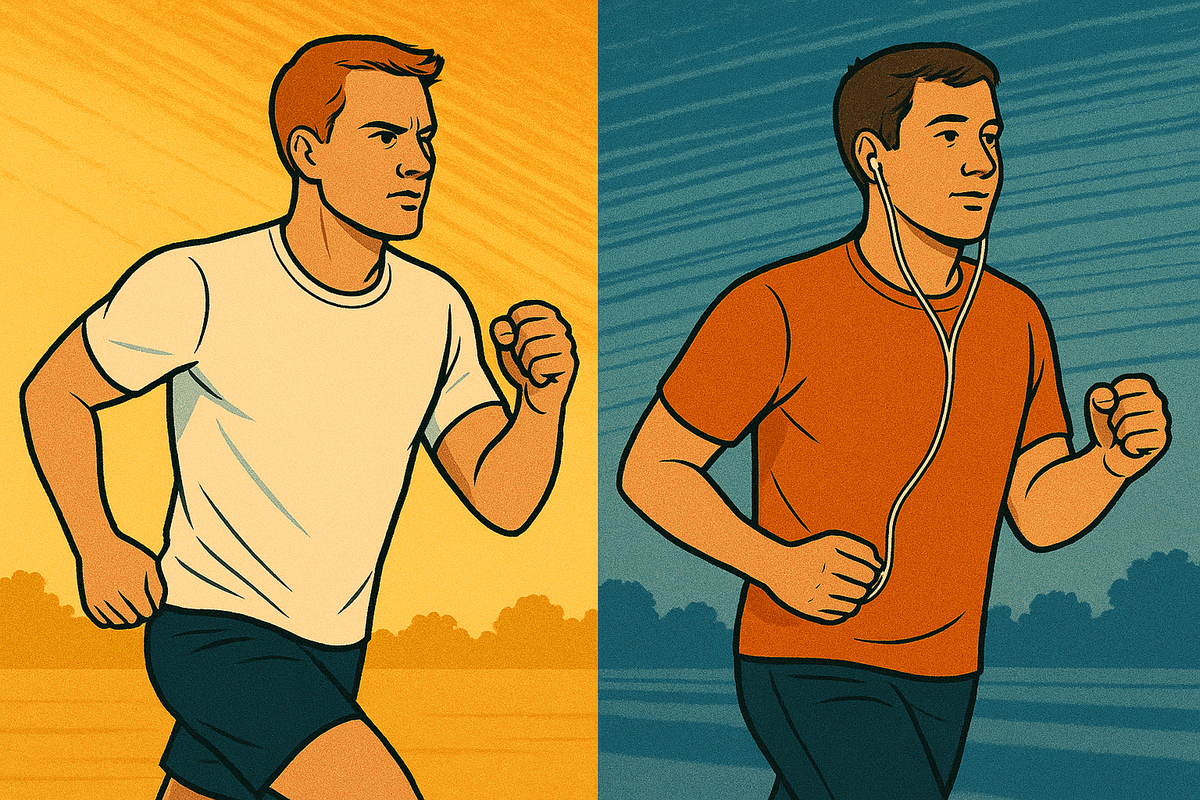
We’ve all been there – life gets busy, and suddenly your fitness routine becomes a Saturday morning sprint session followed by Sunday yoga. But when it comes to how exercise affects your biological aging process, does timing really matter?
New research has fascinating answers about how different exercise patterns influence not just how long you might live, but how biologically young your body remains as you age. Spoiler alert: your body might have stronger opinions about weekend warrioring than you’d expect!
Your Body’s True Age: Beyond Birthdays
First, let’s get one thing straight: your driver’s license age and your body’s biological age aren’t necessarily the same thing. Scientists can now measure something called “phenotypic age acceleration” (PhenoAgeAccel) – essentially, whether your body is aging faster or slower than your chronological age.
Think of it like your car’s mileage versus its actual condition. Two 10-year-old cars might have the same age on paper, but the one that’s been regularly maintained will be in much better shape than the one that’s been neglected (or driven hard and put away wet!).
What Researchers Discovered About Exercise Patterns
A comprehensive study published in the Journal of Exercise Science & Fitness analyzed data from nearly 15,000 American adults to see how different leisure-time physical activity (LTPA) patterns affected biological aging. Here’s what they found:
Regular exercisers win the anti-aging race: People who spread at least 150 minutes of moderate-to-vigorous activity across 3+ sessions per week showed significantly slower biological aging compared to non-exercisers.
Some is better than none: Even “insufficiently active” folks (those exercising less than 150 minutes weekly) still showed better aging markers than complete couch potatoes.
Weekend warriors came up short: Surprisingly, cramming all your exercise into just 1-2 weekly sessions didn’t provide the same significant anti-aging benefits as regular activity, even when the total minutes were the same!
The Goldilocks zone exists: There’s also such a thing as too much exercise. The research showed a “threshold effect” where benefits maxed out at about 560 minutes (9.3 hours) of activity per week. Beyond that, additional exercise didn’t further slow aging and might even slightly accelerate it.
What This Means for Your Workout Schedule
Before you throw away your weekend hiking boots or cancel your Sunday cycling club, let’s break down what this actually means for real people with real lives:
For the Time-Crunched Professional
If you’re genuinely only able to exercise on weekends, don’t stop! Weekend warrioring is still vastly better than no activity at all. But consider whether you might squeeze in even a 10-minute walk on a couple of weekdays – that little bit of consistency might make a big difference in how your body ages.
For the Regular Exerciser
You’re on the right track! Keep up that consistent activity pattern, aiming for at least three sessions weekly. The good news? You don’t need to become an ultra-marathoner – moderate amounts of regular activity appear optimal for longevity.
For the Fitness Enthusiast
If you’re regularly putting in more than 9-10 hours of exercise weekly, you might want to reconsider whether more is always better. The research suggests there’s a point where additional exercise doesn’t provide added anti-aging benefits and could potentially do the opposite. Recovery matters!
Your Anti-Aging Exercise Prescription
Based on this research, here’s your optimal exercise formula for slowing down your biological clock:
- Aim for consistency: 3+ exercise sessions per week
- Target the sweet spot: 150-560 minutes weekly of moderate-to-vigorous activity
- Mix it up: Include both cardiovascular and strength activities
- Start where you are: Even small, consistent doses of movement are beneficial
Remember, the perfect exercise routine is one you’ll actually do. If weekend warrior mode is truly your only option, it’s infinitely better than nothing. But if biological aging is your concern, finding ways to move more consistently throughout the week might be worth rearranging your schedule.
Your body, much like your car, appreciates regular maintenance more than occasional overhauls. A little bit of daily movement might be the oil change your biological engine needs to keep running smoothly for years to come!
This article is based on research by Dongzhe Wu et al., published in the Journal of Exercise Science & Fitness, Volume 22, 2024. The study examined the dose-response relationship between leisure-time physical activity patterns and phenotypic age acceleration in American adults.
Discover More
- Does Swearing Make You Stronger? the Surprising Science Behind Cursing and Performance
- Power Up Your Performance With Probiotics: How Gut Health Could Be Your Secret Weapon
- Move Your Mood: How Exercise Lifts Depression and Anxiety During Menopause
- The Weekend Warrior vs. Regular Exercise: What's Best for Slowing Down Your Biological Clock?
- Can Creatine Save Your Workout When Cutting Carbs?
- Carnivore Diet for Athletes: Do You Need Carbs After All?
- Mix It Up! How to Combine Cardio and Strength Training for Maximum Results
- Rocking Your Walk: How Unstable Shoes Could Strengthen Your Feet and Improve Your Balance
- Trail Running Safety: Navigate the Path to Injury-Free Adventures
- Tech Your Way to Better Fitness: How Older Adults Are Using Digital Tools to Stay Active
- Rest Periods Matter: Finding Your Sweet Spot for High-Intensity Sprint Training
- Supercharge Your Jump: How Adding Bands to Your Deadlift Can Boost Performance
- Caffeine Before Exercise: Is Your Pre-Workout Cup of Joe Actually Helping You Burn Fat?
- Paws-Itively Perfect Exercise: How Your Dog Can Be Your Best Workout Partner
- The Long and Short of It: How Pole Length Can Boost Your Cross-Country Skiing Performance
- Time-Restricted Eating: Get Leaner Without Losing Your Gains
- Boost Your Strength & Shed Fat: Essential Amino Acids + Resistance Training
- Finding Your Perfect Fit: How Footwear Affects Performance and Injury Risk
- HIIT vs. Moderate Exercise: The Mood Rollercoaster Your Workout Takes You On
- Hydration Hype: Do Specialty Drinks Boost Exercise Performance? See more
